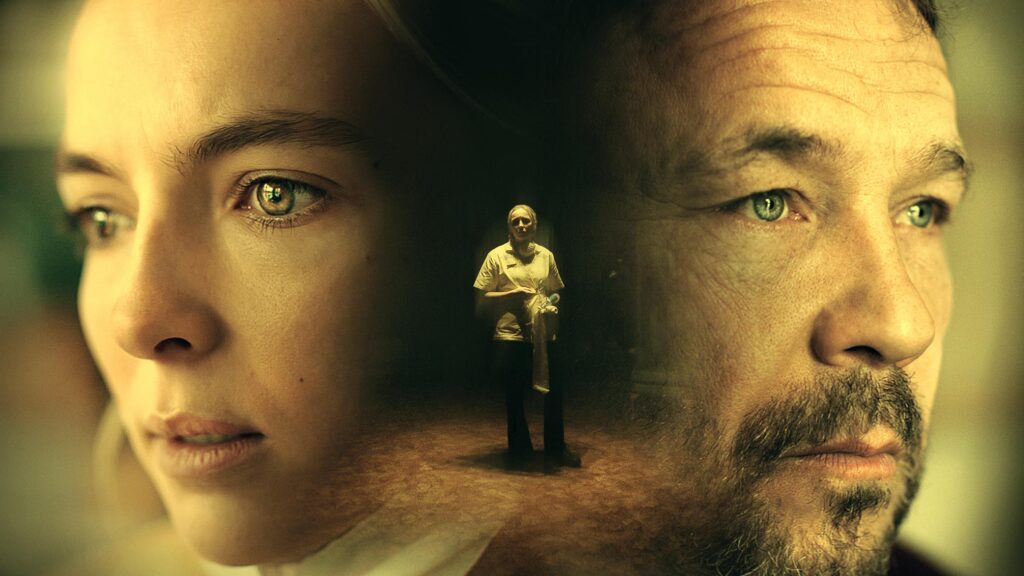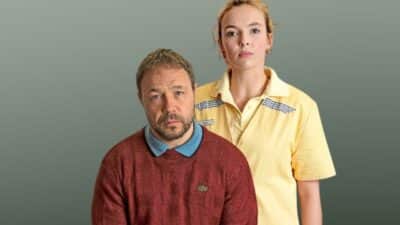Bravo, Channel 4. Bravo to all involved in your drama, ‘Help’. Wow! And thank you.
We’re not literary/media journalists by any stretch of the imagination. For readers not familiar with us, we are a UK training provider for Health and Social Care staff. So, whilst we are unable to craft a review of ‘Help’ in any traditional sense, we can certainly recognise and describe links between our first-hand experience of the reality we all went through supporting the care industry, to this scripted drama. Or perhaps we should say “link”, because from scene 1 act 1 to the closing credits, the connection was seamless and breath-taking. And we’d like to take this opportunity to talk about it.
Help is available for online viewing here.
Warning, spoilers ahead!! If you haven’t seen ‘Help’, but intend to, please don’t read on.
When Help Collapsed
But first… We’ve read many reviews since ‘Help’ aired that seem to be describing a dismay at an over-embellishment of a story that the reviewers felt was simply not required. Most specifically the act of essentially the kidnapping of a supported individual. We rather fear these reviews have missed a crucial point. ‘Help’ for carers collapsed. The script for ‘Help’ did not.
The help that was necessary to support the carers collapsed so completely and utterly, leaving Sarah (Jodie Comer) with too much responsibility for decision making. The systems and support mechanisms that should have (and could have) been in place to protect Sarah and help her perform her role to her fullest as carer were absent. In the face of failure and what must have seemed like the inevitability of a death for the person (Tony) whom she was supporting, the script crossed over from showing us a Care Worker defined by processes and protocol (and a healthy dose of character and beautiful human), to a personal human-nature story of tragedy in panic, instincts and obscured judgement. For Sarah, no help was coming. She was isolated, on her own and carrying the weight of decisions that she should not have had to own alone. She made choices in the situation she was in, shrouded by fear and working under imminent and intense pressure that she should never have been exposed to.
For us, that was the very topic about which the whole drama was drawn from and pivoted. Help. Or more specifically, the lack of help. From Sarah’s horrific nightshift alone with Kenny (why was she alone?), to wearing home assembled PPE of a builders’ dust mask and modified bin bag, to not receiving medical support in an emergency… It was the lack of help while stood square in the face of uncertainty and fear. In real-life, help did not arrive.
The scenes filmed in darkness with only Sarah frantically pacing the corridors really carried the utter panic and distress she must have felt without the support or mechanisms around her to share the decision making and facilitation of care for the most vulnerable people living within the care home. The ultra-loud “click-whizz” of the hand-gel dispenser at every passing was jarring against the breathlessness of the scene. And throughout the whole drama, touching scenes that describe some of the reality of what Dementia is like for many people (Tony). We hope this helps to raise awareness of the impact of dementia on younger people and raises again the questions around the environment he lived in for his age group. The archaic practice of using sedation as a form of restraint was particularly disturbing to watch. But tender and powerful scenes were also delivered beautifully, such as the residents gently touching another’s arm to offer some reassurance to Pol as she stood reciting a poem, reliving her experience in a former career as an English teacher. Scenes that are truly powerful and highlight that people receiving care are more than just a number, but human beings with a life and a past and a history.
V’s the real-world…
Help captured and described many of the realities of life inside a care home, both pre-covid and during the arrival of the pandemic. It felt to us at times more like a fly-on-the-wall documentary than a scripted drama. This particular home (they’re all different/unique in real life) felt stressfully under-resourced from the very beginning. A home held up by a few passionate individuals grasping to control many daily challenges, while moving priorities down the pecking order that really required attention from a provider and senior management team level.
The whole drama was packed layer upon layer upon layer of real-world working practices and realities… the characters, the fabric and ambience of the home, the admin, the good and the bad. Really all too much for us to evidence and describe in our humble blog.
It’s important to acknowledge that as real-world representative as this drama was in so many respects, it’s not representative of every care home or every carer. As we mentioned earlier, every home and carer is unique. We’ve visited homes just like this one, and we’ve visited poorer and we’ve visited better. And we recognise Sarah. We’ve met her 1000 times in 1000 faces. While help collapsed for Sarah and the individuals she was supporting, which took her particular story down a path of poor judgement, the world needs Sarah’s. The whole Health and Social Care sector continues to need help, recognition and support to raise the understanding of the work it does, the people they support and the many people’s lives they help to change and enhance.
We’d like to thank Channel 4 for commissioning this piece and thank each-and-every person involved. And we do. Thank you for sharing this.
But more importantly, we reflect again on more than 30,000 people who died in care, and the many thousands of families, friends and carers who experienced first-hand the horrific arrival (and continuous challenge) of the Covid19 pandemic in care homes.
Thank you to every carer who lives on the front line of Health and Social Care. Before, during and post-arrival of Covid. You’re our heroes. Thank you.



